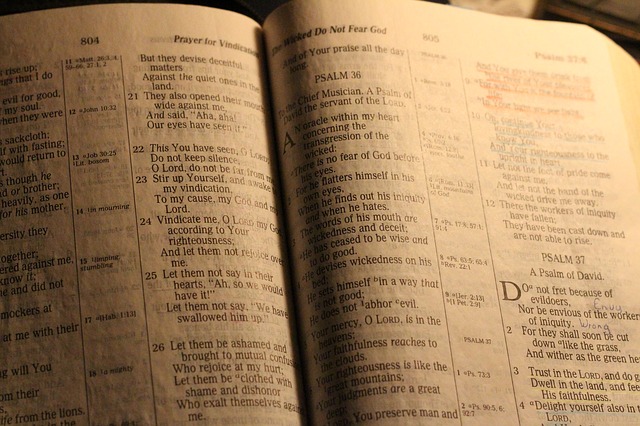
SS Preview Sept 1 2019


SS Preview August 25, 2019


SS Preview August 18, 2019

Greetings everyone
This week’s SS lesson scriptural text is again found in the Old Testament book of Ruth. The Book of Ruth is neatly positioned between the Books of Judges and 1st Samuel. It is a book of history that takes place after Joshua and the conquest of Canaan and before the Jewish monarchy that began with Saul. It tells the story of King David’s parentage and of Ruth his great grandmother.
Last week’s lesson introduced us to Ruth and the significance of her decision to go with Naomi back to Israel. I encourage you to listen to last week’s commentary to understand it better. This week’s lesson is entitled “A Covenant to Marry” or “The Reward of Commitment”.
Upon returning home to Israel, the two widows found themselves alone with no means of support. Grains, much like today and throughout human history, is a staple of the human diet. So, Ruth decided to go, with Naomi’s blessing, to glean or gather the leftovers of what the reapers of the grain harvest were leaving behind in whoever field would let her gleam. Gleaning indicated a person’s low economic status and was the only means many people kept from starving.
Unbeknown to Ruth, she chose the field of her dead husband and father in law kinsman. He was a wealthy and an older man and immediately took notice of Ruth and made inquiries about her. He treated her with special attention and kindness after discovering her and Naomi’s situation. After the harvest was over, Naomi instructed Ruth to go to the threshing floor where Boaz, this near kinsman, would be sleeping, undercover and lay down at his feet and ask Him to redeem that which had belonged to his deceased kinsman which would include marrying her.
This is something a woman would not normally do for fear it would appear improper, forward and prove to be very embarrassing. But Naomi sensed that Boaz had feelings for Ruth by evidence of the particular kindness He had shown toward her. Boaz, was surprised but grateful that Ruth had done this because he did have feelings for her but didn’t think she would be interested in him because of their age difference.
He promised her he would do what she asked if a nearer kinsman to them who had a stronger claim to redemption declined to do so. The other kinsman, when offered the chance to redeem all of Naomi’s and Ruth’s husband’s inheritance, declined. Boaz then made good on his promise to Ruth and redeemed it all and married Ruth. They had a son, Obed, who had a son Jesse, who had a son David of whom Jesus is called the son of.
One of the beautiful analogies of this story is that of believer and redeemer. Ruth represents the believers and Gentiles believers in particular. Boaz represents Christ the Savior. Ruth, an outsider, who placed her fate and faith in a people and God she didn’t know was saved by a Redeemer, Boaz, who showed her undeserving favor and kindness.
We too have been shown kindness and favor who are outsiders by a loving and merciful God we have place our fate and faith in. We are all a type of Ruth and Boaz is a type of Christ. Like Ruth, we must lay ourselves down at the feet of Jesus and ask Him to cover and redeem us from the curse and consequences of sin.
Ruth could have had other younger, richer men who could have comforted and took care of her but chose a redeemer instead. We too can choose someone or something other than Christ to bring us joy and comfort, but Christ is the only Redeemer of the soul and spirit. Ruth is a short book with only four chapters and is a beautiful story of fate, faith, love and redemption which is well worth the read.
Well, I hope you will attend SS this coming Sunday and share your thoughts with the class. If you have any comments or questions, be sure to place them in the comment section at the bottom of this preview. So, until next time remember to fear God and keep His commandments.
Pastor Jordan

SS Preview August 11, 2019

Greetings everyone
This week’s SS lesson scriptural text is found in the Old Testament book of Ruth in the 1st chapter. The Book of Ruth is neatly positioned between the Books of Judges and 1st Samuel. It is a book of history that tells the story of King David’s parentage.
Ruth is King David’s great grandmother. She was not born Jewish, but was a Moabite. She married into a Jewish family who had come to Moab from Israel to find food and escape a famine. While living in Moab, Ruth’s husband, her father-in-law and her brother-in-law all died leaving just her, her sister-in-law and mother-in-law, Naomi.
After learning the famine was over, Naomi decides to go back to Israel and her two daughters-in-law decided to go with her. Naomi urges both of them to stay with their people and after much persuasion, one daughter-in-law decided to stay. But Ruth could not be persuaded and was determined to go with Naomi and become one of her people.
There are several important takeaways from this lesson. First, some bonds between people are so strong that they can’t be broken by circumstances. Our bond with God through Christ should be like that so that nothing can break it.
Second, sometimes we must leave what we know or our comfort zone in order to do and go where we feel compelled to go. Ruth felt compelled to go with Naomi. To be a disciple of Christ, we must forsake many, if not all of, the friendships, relationships and ways we are familiar with to go on a spiritual journey that is new, different and unknown. It doesn’t mean we won’t have any interactions with those we know, it means the manner in which we have such interactions will become new and different.
Thirdly, a person doesn’t have to be born a Jew or into the family of God to belong to His family. Most people are born outside the physical family of God because they are born non-Jewish. Ruth was one such person. But she accepted God as her God and His people as her people and God allowed her to do so and received her into His family. The same thing applies to us today. Even though we were not born into God’s family, by receiving Jesus Christ as our Lord and Savior we are adopted as full children and heirs with Christ.
Finally, by trusting God, God did for her things neither she nor Naomi thought possible when they set out on their journey home. They didn’t know what awaited them or how they were going to make it. The same thing applies to us today. We can’t see or know how things are going to turn out in our lives by following Jesus. All we can know is that we trust Him, regardless of what happens, to bring us to a better and everlasting place and that He is able to make our way better and brighter as we journey to our eternal home.
This lesson is the first of two from the Book of Ruth. Today’s lesson looks at the commitment to become one of God people. Our journey as Christians must begin with commitment. Ruth’s commitment was unto death and so must ours be. Anything less is unacceptable to God. A church or individual’s faith is only as strong as their commitment is to doing the will of God. Part two of Ruth on next Sunday will look at how God intervened in Ruth’s and Naomi’s life as two widows alone with only their faith. So, don’t miss it.
Well, I hope you will attend SS this coming Sunday and share your thoughts with the class. If you have any comments or questions, be sure to place them in the comment section. Until next time remember to fear God and keep His commandments.
Pastor Jordan

SS Preview August 4, 2019


SS Preview July 28, 2019


SS Preview July 21, 2019


SS Preview July 14, 2019


SS Preview July 7, 2019


SS Preview August 12, 2018


